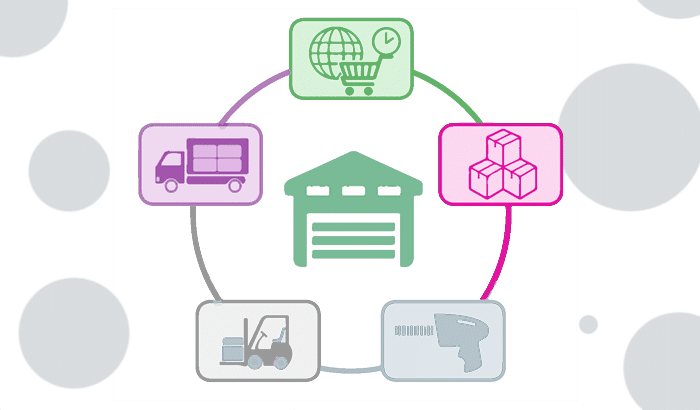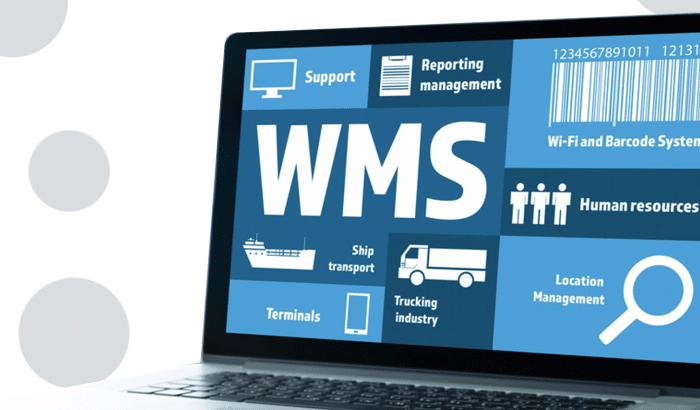In today’s fast-paced business environment, efficient warehouse management is essential for companies to stay competitive. With the rise of e-commerce and globalization, businesses need robust warehouse management software (WMS) to streamline their operations, improve inventory accuracy, and enhance overall productivity.
This article aims to provide you with an in-depth overview of the top 10 best warehouse management software available in the market.
Whether you are a small business or a large enterprise, these software solutions can help you optimize your warehouse processes and achieve operational excellence.
Daftar Isi :
what is Warehouse Management Software ?
Warehouse Management Software (WMS) is a specialized computer software that is designed to efficiently manage and control the operations within a warehouse or distribution center.
It provides a comprehensive set of tools and functionalities to optimize inventory management, streamline order fulfillment processes, and enhance overall warehouse productivity.
WMS enables businesses to effectively track and manage inventory levels, ensuring accurate stock counts and minimizing stockouts or overstock situations. It provides real-time visibility into inventory, allowing warehouse managers to easily locate items, track their movement, and plan for optimal storage and organization.
One of the key features of WMS is its ability to automate various warehouse processes. It automates tasks such as receiving, put-away, picking, packing, and shipping, reducing reliance on manual labor and improving operational efficiency. By utilizing barcode scanning and other identification technologies, WMS ensures accurate and timely order fulfillment, reducing errors and improving customer satisfaction.
Warehouse Management Software also plays a crucial role in optimizing labor utilization within the warehouse. It provides tools for managing and scheduling warehouse staff, assigning tasks, and tracking their productivity. This helps businesses allocate resources effectively, minimize idle time, and improve overall workforce productivity.
Another important aspect of WMS is its integration capabilities. It can seamlessly integrate with other business systems such as Enterprise Resource Planning (ERP), Customer Relationship Management (CRM), and transportation management systems. This integration enables smooth data flow between different departments, enhances overall visibility, and supports better decision-making processes.
In summary, Warehouse Management Software is a powerful tool that enables businesses to streamline their warehouse operations, enhance inventory accuracy, improve order fulfillment processes, and increase overall productivity. By utilizing WMS, businesses can effectively manage their inventory, reduce costs, and provide exceptional customer service in today’s dynamic and competitive business environment.
Top 10 Best Warehouse Management Software
1. Warehouse365
Warehouse365 is a comprehensive cloud-based WMS that offers advanced features for inventory tracking, order fulfillment, and warehouse optimization. With its intuitive interface and real-time analytics, Warehouse365 empowers businesses to make data-driven decisions and streamline their supply chain operations. This software also supports integration with other business systems, such as ERP and CRM, for seamless workflow management.
2. Logiwa
Logiwa is a scalable and flexible WMS designed to meet the complex needs of modern warehouses. It provides end-to-end visibility, automates key processes, and optimizes inventory control. Logiwa’s advanced algorithms and machine learning capabilities enable accurate demand forecasting and efficient order picking, ensuring high customer satisfaction and reduced operational costs.
3. Fishbowl Warehouse
Fishbowl Warehouse is a popular WMS solution that integrates with QuickBooks, making it an ideal choice for small and mid-sized businesses. It offers a wide range of features, including inventory management, order fulfillment, and barcode scanning. Fishbowl Warehouse also provides advanced reporting and analytics tools to help businesses gain valuable insights into their warehouse performance.
4. SAP Extended Warehouse Management (EWM)
SAP EWM is a robust WMS designed for large enterprises with complex warehousing needs. It offers comprehensive functionality for inventory management, labor optimization, and transportation planning. With SAP EWM, businesses can achieve higher warehouse efficiency, reduce stockouts, and improve customer satisfaction through accurate and timely order fulfillment.
5. HighJump Warehouse Management System (WMS)
HighJump WMS is a feature-rich software solution that caters to the diverse needs of warehouses across various industries. It offers advanced capabilities for inventory tracking, cross-docking, and warehouse labor management. HighJump WMS also provides real-time visibility into warehouse operations, enabling businesses to make proactive decisions and meet customer demands effectively.
6. Manhattan Associates Warehouse Management System (WMS)
Manhattan Associates WMS is a comprehensive solution that helps businesses optimize their supply chain operations. It offers advanced inventory management, order fulfillment, and labor tracking features. With Manhattan Associates WMS, companies can achieve higher inventory accuracy, reduce order cycle times, and enhance overall warehouse productivity.
7. JDA Warehouse Management
JDA Warehouse Management is a highly scalable WMS designed to support the needs of large and complex distribution centers. It provides robust features for inventory optimization, labor management, and transportation planning. JDA Warehouse Management also offers powerful analytics tools that enable businesses to gain actionable insights and drive continuous improvement.
8. Oracle Warehouse Management Cloud (WMS)
Oracle WMS is a cloud-based solution that helps businesses streamline their warehouse operations and improve overall supply chain efficiency. It offers advanced features for inventory management, order fulfillment, and warehouse automation. Oracle WMS also integrates seamlessly with other Oracle applications, enabling end-to-end visibility and control across the entire supply chain.
9. 3PL Warehouse Manager
3PL Warehouse Manager is a specialized WMS designed for third-party logistics providers. It offers comprehensive functionality for order management, billing, and reporting. With 3PL Warehouse Manager, logistics companies can efficiently manage multiple clients, track inventory across various locations, and provide real-time visibility to their customers.
10. Snapfulfil
Snapfulfil is a cloud-based WMS that provides flexible and scalable solutions for warehouses of all sizes. It offers features such as inventory management, wave planning, and automated replenishment. Snapfulfil also integrates with popular e-commerce platforms, enabling seamless order processing and fulfillment.
5 tips for choosing best Warehouse Management Software
When it comes to choosing the best Warehouse Management Software (WMS) for your business, it’s essential to consider various factors to ensure you make the right decision. Here are five tips to help you in the selection process:
1. Evaluate Your Business Needs
Before exploring different WMS options, assess your specific business needs and requirements. Consider factors such as the size of your warehouse, the complexity of your operations, the number of SKUs you handle, and any industry-specific considerations. This evaluation will help you identify the features and functionalities you need in a WMS to effectively manage your warehouse operations.
2. Scalability and Flexibility
Choose a WMS that can scale with your business growth and adapt to changing needs. Your warehouse operations may expand, and you might require additional functionality or integration with other systems in the future. Ensure that the WMS you select has the flexibility to accommodate these changes and offers scalability options without disrupting your operations.
3. Integration Capabilities
Seamless integration with other business systems, such as ERP, CRM, and e-commerce platforms, is crucial for efficient warehouse management. The WMS should have the ability to exchange data seamlessly with these systems, allowing for accurate and real-time information flow across different departments. This integration ensures consistency, minimizes manual data entry, and enhances overall visibility and decision-making capabilities.
4. User-Friendly Interface
Opt for a WMS that has an intuitive and user-friendly interface. Warehouse employees will be interacting with the software daily, so it’s important that they can easily navigate through the system and perform their tasks efficiently. A user-friendly interface reduces training time and minimizes errors, leading to increased productivity and employee satisfaction.
5. Support and Maintenance
Consider the level of support and maintenance provided by the WMS vendor. A reliable support system ensures that you can get timely assistance when facing issues or require technical support. Look for a vendor that offers ongoing updates, bug fixes, and regular software enhancements to keep your WMS up to date and aligned with industry standards.
By following these tips and conducting thorough research, you can choose the best Warehouse Management Software that meets your specific business needs, improves operational efficiency, and helps drive your warehouse towards success.
FAQs
Q1: What factors should I consider when choosing a warehouse management software?
When selecting a warehouse management software, it’s essential to consider factors such as scalability, integration capabilities, ease of use, reporting and analytics, and customer support. Additionally, evaluate the software’s suitability for your specific industry and the features it offers for inventory management, order fulfillment, and labor optimization.
Q2: Can warehouse management software help improve order accuracy?
Yes, warehouse management software can significantly enhance order accuracy. By automating key processes, providing real-time inventory visibility, and implementing barcode scanning and verification, WMS reduces human errors and ensures accurate order picking and fulfillment.
Q3: How can warehouse management software improve warehouse productivity?
Warehouse management software can improve warehouse productivity through features like optimized picking routes, automated replenishment, and labor tracking. By streamlining processes, minimizing travel time, and maximizing resource utilization, WMS helps warehouses operate more efficiently and achieve higher productivity levels.
Q4: Is it necessary to integrate warehouse management software with other business systems?
Integrating warehouse management software with other business systems, such as ERP and CRM, can provide significant benefits. It enables seamless data flow between different departments, improves overall visibility, and enhances decision-making capabilities. Integration also eliminates manual data entry and reduces the risk of errors.
Q5: Can warehouse management software adapt to changing business needs?
Yes, modern warehouse management software is designed to be flexible and scalable, allowing businesses to adapt to changing needs. As your business grows or your requirements evolve, WMS can accommodate additional warehouses, users, and inventory volumes, ensuring continued operational efficiency.
Q6: How long does it take to implement a warehouse management software?
The implementation timeline for warehouse management software can vary depending on factors such as the complexity of your operations, system customization requirements, and data migration. On average, the implementation process can range from a few weeks to a few months. It’s crucial to work closely with the software provider to ensure a smooth transition.
Conclusion
Investing in the right warehouse management software is crucial for businesses aiming to optimize their warehouse operations and stay ahead of the competition. The top 10 best warehouse management software mentioned in this article offer a wide range of features and capabilities to meet the diverse needs of different industries. Whether you are a small business or a large enterprise, these software solutions can help you streamline processes, improve inventory accuracy, and enhance overall productivity. Evaluate your specific requirements, consider the features and integration capabilities, and choose the WMS that best aligns with your business goals.
Read Also:

